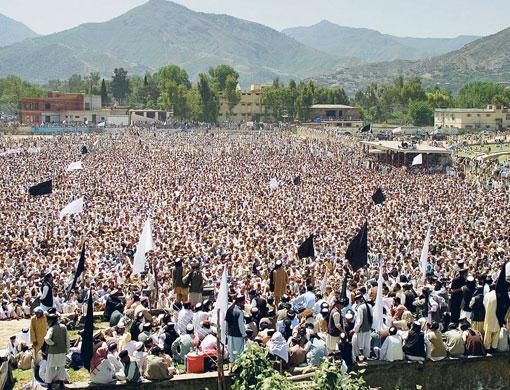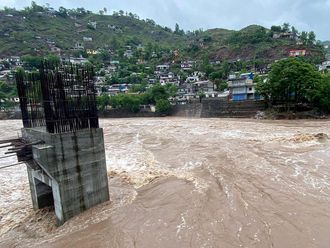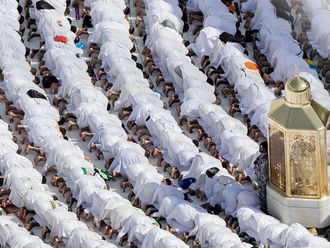Islamabad: The cleric calling the shots in Pakistan's northern Swat region on Sunday said the country was living under an "infidel" system with the judiciary and other institutions not observing the tenets of Sharia.
Maulana Sufi Mohammad made the remarks at a rally attended by thousands of people at Mingora, the main town in Swat, to celebrate the success of the movement led to enforce Sharia in the region.
Mohammad said according to Pakistan's constitution Sharia was to be the supreme law and basis for running the affairs, but no decision conforming to Sharia had been made to date in the Supreme Court or high courts.
Mohammad's Tehreek Nifaz Shariat-e-Muhammad (TNSM) and the government of North West Frontier Province (NWFP) signed an agreement in February for implementation of Sharia-based justice system or Nizam-e-Adl in the region.
A Nizam-e-Adl Regulation prepared by the NWFP government was endorsed by the National Assembly in Islamabad and signed by President Asif Ali Zardari earlier this month.
Critics saw the deal as a surrender to the Swat Taliban militants led by TNSM chief's son-in-law Maulana Fazlullah. Mohammad demanded speedy implementation of the regulation under which Islamic 'Qaz' courts are to be set up in the region along with a 'Darul Qaza" or appellate court to hear appeals.
He set a four-day deadline for establishment of 'Darul Qaza' and said Qazi courts must be installed throughout the seven districts of Malakand Division that include Swat within one month to start administering justice according to Shariah laws.
The TNSM leader's remarks against the country's judicial system were likely to add fuel to the fire of ongoing controversy over the Swat peace deal.
The resolution endorsing the Nizam-e-Adl was supported in the National Assembly by all political parties except Karachi-based Muttahida Qaumi Movement, which bristled on what it called a "deal imposed at gunpoint by the Taliban".
The Awami National Party, which rules NWFP and is a partner of the PPP in the federal government, has defended the deal mainly on the grounds that similar formulas were used in the past in Swat and that there was not other option for ending the bloodbath in the region.
The party's chief, Asfandyar Wali Khan, ssaid the critics had failed to suggest any alternate route to peace in Swat.












